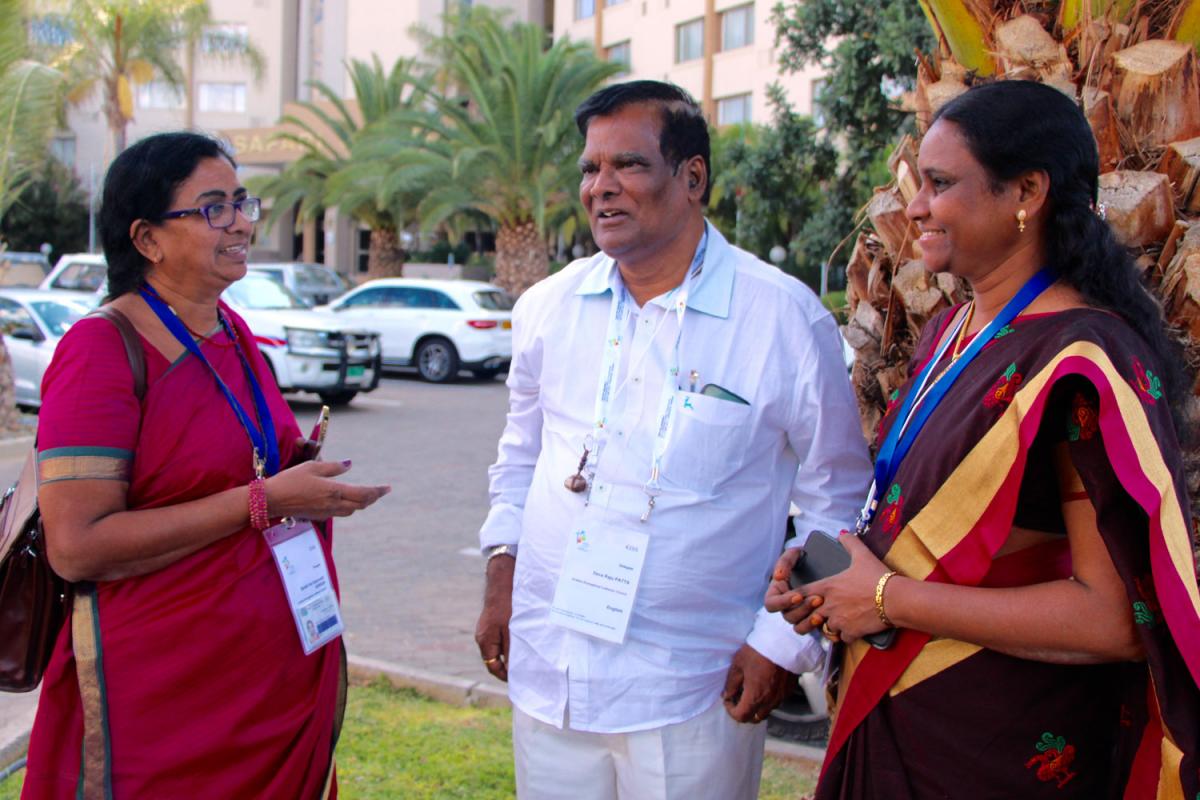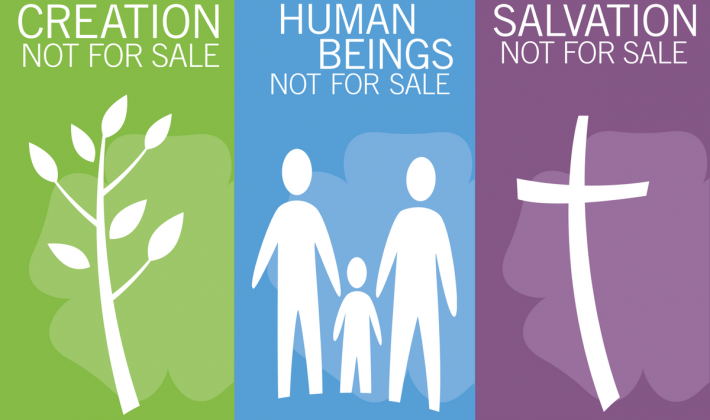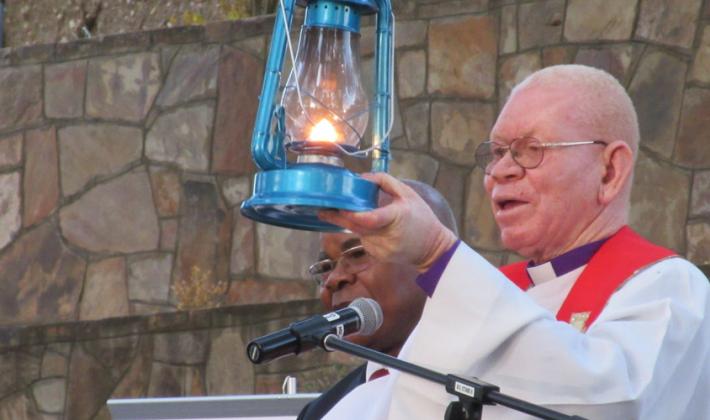
Women do not always experience liberating grace, therefore during the LWF Assembly in Namibia, there was a call for freedom from gender-based violence and marginalization. “I was moved to tears in experiencing the theme of the Assembly amidst other Lutherans and ecumenical partners, I'm privileged to be called a child of God through the waters of baptism, I'm freed, I'm equal, I'm a changed person,” said Cathy Mui from Papua New Guinea.
Structural Change for Long-term Development
Rev. Dr Elaine Neuenfeldt, the LWF Secretary for Women in Church and Society (WICAS) fears that without effective contextualization of the gender justice policy throughout our communion in Asia will simply be another document. Asian leaders made a constructive commitment during the Asia Church Leadership Consultation (ACLC) from 12-15 April 2015 at the China Lutheran Seminary, Hsinchu, Taiwan to ensure participation of 20% youth and 40% women. Asian leaders recognize that these changes must first happen in local churches before sustainable participation can be ensured at regional and global levels. The LWF Gender Justice Policy lays out a biblically-rooted framework for the Asia Lutheran Communion to take concrete steps to implement gender justice policies and to adopt action plans to different contextual realities.
Change of Attitude in Church and Society
Beulah Iris Satyavathi Sundur from the Andhra Evangelical Lutheran Church in India feels strongly that men's attitude towards women should change, and for this to be a reality, she added, “resolutions or public statements should be translated into tangible actions in order for hurts to be healed.” Asian women are encouraged to express their stories and share their experiences as this will create opportunity and build new possibilities for Asian women's progress in churches locally. Change of attitude should also percolate to the grassroots level for an effective transformative change of attitude. “We are liberated by God's grace, both men and women, equally, liberated from traditional world views or cultural teachings or restraints that are not rooted in the bible” expressed Nora Samosir, WICAS representative for the South East Asian Lutheran Communion (SEALUC).
Equal Responsibility as the Way Forward
It was also noted that gender issues and generational issues continue to remain as social issues in the Lutheran churches in Asia and require ongoing reformation. Speaking from the context of the Batak people in Sumatra, Indonesia, Nora Samosir said: “In the Batak community, women are not seen as subordinates, but as equal partners with different distinct roles and responsibilities.”
“I see the equal opportunity of theological education for women as a means that will empower women to take equal responsibilities with men,” said Cathy Mui from Papua New Guinea. Gender-based violence and marginalization are issues that the Asian Lutheran Communion is addressing concretely in accordance with the theme of the LWF Twelve Assembly “Liberated by God's grace.”
LWF/Steven Lawrence


